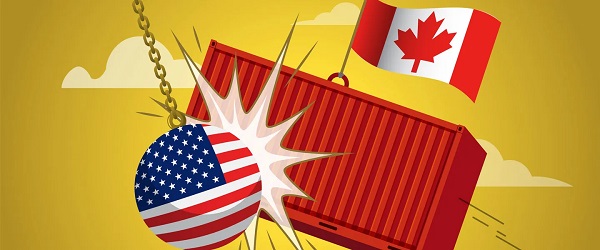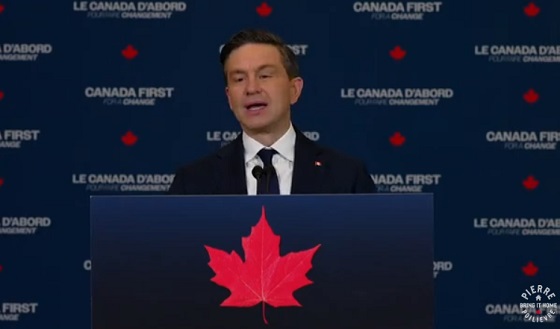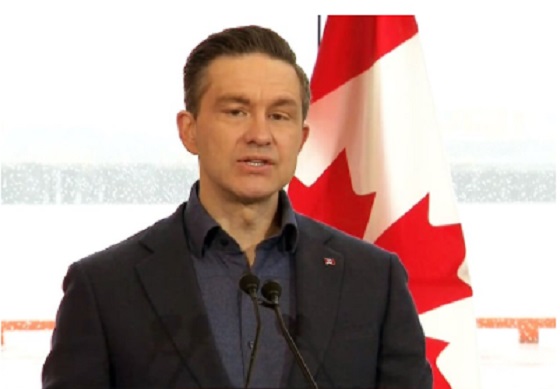Uncategorized
Bill Cosby gets 3 to 10 years in prison for sex assault

NORRISTOWN, Pa. — His Hollywood career and good-guy image in ruins, Bill Cosby was led off to prison in handcuffs Tuesday at age 81, sentenced to three to 10 years behind bars for drugging and sexually assaulting a woman.
The punishment made him the first celebrity of the #MeToo era to be sent to prison and all but completed the dizzying, late-in-life fall from grace for the comedian, former TV star and breaker of racial barriers.
“It is time for justice. Mr. Cosby, this has all circled back to you. The time has come,” Montgomery County Judge Steven O’Neill said. He quoted from victim Andrea Constand’s own statement to the court, in which she said Cosby took her “beautiful, young spirit and crushed it.”
Cosby declined the opportunity to speak before the sentence came down, and afterward sat smiling, laughing and chatting with his
Cosby’s lawyers asked that he be allowed to remain free on bail while he appeals his conviction, but the judge appeared incredulous over the request and ordered him locked up immediately, saying that “he could quite possibly be a danger to the community.”
The comedian removed his watch, tie and jacket and walked out in a white dress shirt and red suspenders, his hands cuffed in front of him.
Former model Janice Dickinson, who was among the 60 or so women who have come forward to accuse Cosby of drugging and violating them over the past five decades, looked at Cosby and said: “Here’s the last laugh, pal.”
Another Cosby accuser in the courtroom, Lili Bernard, said: “There is solace, absolutely. It is his fame and his fortune and his
The punishment, which also included a $25,000 fine, came at the end of a two-day hearing at which the judge declared Cosby a “sexually violent predator” — a modern-day scarlet letter that subjects him to monthly
The comic once known as America’s Dad for his role on the top-rated “Cosby Show” in the 1980s was convicted in April of violating Constand, Temple University women’s basketball administrator, at his suburban Philadelphia estate in 2004. It was the first celebrity trial of the #MeToo era.
Cosby faced a sentence of anywhere from probation to 10 years in prison. His lawyers asked for house arrest, saying Cosby — who is legally blind — is too old and vulnerable to do time in prison. Prosecutors asked for five to 10 years behind bars, saying he could still pose a threat to women.
Montgomery County District Attorney Kevin Steele rejected the notion that Cosby’s age and infirmity entitle him to mercy. “He was good at hiding this for a long time. Good at suppressing this for a long time. So it’s taken a long time to get there,” Steele said.
The sentencing came as another extraordinary #MeToo drama unfolded on Capitol Hill, where Supreme Court nominee Brett Kavanaugh stands accused of sexual misconduct more than three decades ago.
The Cosby case “really raised awareness of the pervasiveness of … sexual misconduct against subordinates and against women of relatively less power,” said Daniel Filler, dean of Drexel University’s law school. “For jurors, I think it’s inherently changed the credibility of the accusers.”
The judge ruled on Cosby’s “sexually violent predator” status after a psychologist for the state testified that the entertainer appears to have a mental disorder that gives him an uncontrollable urge to have sex with women without their consent. When the ruling came down, a woman in the courtroom shot her fist into the air and whispered, “Yessss!”
In a statement submitted to the court and released Tuesday, Constand, 45, said that she has had to cope with years of anxiety and self-doubt. She said she now lives alone with her two dogs and has trouble trusting people.
“When the sexual assault happened, I was a young woman brimming with confidence and looking forward to a future bright with possibilities,” she wrote in her five-page statement. “Now, almost 15 years later, I’m a middle-aged woman who’s been stuck in a holding pattern for most of her adult life, unable to heal fully or to move forward.”
She also wrote of Cosby: “We may never know the full extent of his double life as a sexual predator, but his decades-long reign of terror as a serial rapist is over.”
The AP does not typically identify people who say they are victims of sexual assault unless they come forward publicly, which Constand and other accusers have done.
Constand went to police a year after waking up in a fog at Cosby’s gated estate, her clothes askew, only to have the district attorney pass on the case.
Another district attorney reopened the file a decade later and charged the TV star after stand-up comic Hannibal Buress’ riff about Cosby being a rapist prompted more accusers to come forward and after a federal judge, acting on a request from The Associated Press, unsealed some of Cosby’s startling, decade-old testimony in Constand’s related civil suit.
In his testimony, Cosby described sexual encounters with a string of actresses, models and other young women and talked about obtaining quaaludes to give to those he wanted to sleep with.
Cosby’s first trial in 2017 ended with a hung jury. He was convicted at a retrial that opened months after the #MeToo movement had taken down such figures as Hollywood studio boss Harvey Weinstein, NBC’s Matt Lauer, actor Kevin Spacey and Sen. Al Franken.
Constand said Cosby gave her what she thought were herbal pills to ease stress, then penetrated her with his fingers as she lay immobilized on a couch. Cosby claimed the encounter was consensual, and his lawyers branded her a “con artist” who framed the comedian to get a big payday — a $3.4 million settlement she received over a decade ago.
Five other accusers took the stand at the trial as part of an effort by prosecutors to portray him as a predator.
Cosby, whose estimated fortune once topped $400 million, broke barriers in the 1960s as the first black actor to star in a network show, “I Spy.” He went on to superstardom as wise and understanding Dr. Cliff Huxtable on “The Cosby Show,” a sitcom that showed America a new kind of black TV family: a warm and loving household led by two professionals, one a lawyer, the other a doctor.
He also found success with his Saturday morning cartoon “Fat Albert,” appeared in commercials for Jello-O pudding and became a public moralist, lecturing the black community about young people stealing things and wearing baggy pants. He won a Presidential Medal of Freedom and countless Emmys, Golden Globes and Grammy awards.
As the allegations mounted, his career all but collapsed, “Cosby Show” reruns were taken off the air, and one college after another stripped him of his honorary degrees.
___
Associated Press writer Claudia Lauer contributed to this report.
Maryclaire Dale And Michael R. Sisak, The Associated Press
Uncategorized
Poilievre on 2025 Election Interference – Carney sill hasn’t fired Liberal MP in Chinese election interference scandal

From Conservative Party Communications
“Yes. He must be disqualified. I find it incredible that Mark Carney would allow someone to run for his party that called for a Canadian citizen to be handed over to a foreign government on a bounty, a foreign government that would almost certainly execute that Canadian citizen.
“Think about that for a second. We have a Liberal MP saying that a Canadian citizen should be handed over to a foreign dictatorship to get a bounty so that that citizen could be murdered. And Mark Carney says he should stay on as a candidate. What does that say about whether Mark Carney would protect Canadians?
“Mark Carney is deeply conflicted. Just in November, he went to Beijing and secured a quarter-billion-dollar loan for his company from a state-owned Chinese bank. He’s deeply compromised, and he will never stand up for Canada against any foreign regime. It is another reason why Mr. Carney must show us all his assets, all the money he owes, all the money that his companies owe to foreign hostile regimes. And this story might not be entirely the story of the bounty, and a Liberal MP calling for a Canadian to be handed over for execution to a foreign government might not be something that the everyday Canadian can relate to because it’s so outrageous. But I ask you this, if Mark Carney would allow his Liberal MP to make a comment like this, when would he ever protect Canada or Canadians against foreign hostility?
“He has never put Canada first, and that’s why we cannot have a fourth Liberal term. After the Lost Liberal Decade, our country is a playground for foreign interference. Our economy is weaker than ever before. Our people more divided. We need a change to put Canada first with a new government that will stand up for the security and economy of our citizens and take back control of our destiny. Let’s bring it home.”
Uncategorized
Canada Needs A Real Plan To Compete Globally

From the Frontier Centre for Public Policy
Ottawa’s ideological policies have left Canada vulnerable. Strategic action is needed now
As Canada navigates an increasingly complex geopolitical landscape, the next federal government must move beyond reflexive anti—Americanism regardless of its political leanings. Instead, Canada should prioritize national interests while avoiding unnecessary conflict and subservience.
The notion that Canada can stand alone is as misguided as the idea that it is only an economic appendage of the United States. Both perspectives have influenced policy in Ottawa at different times, leading to mistakes.
Rather than engaging in futile name-calling or trade disputes, Canada must take strategic steps to reinforce its autonomy. This approach requires a pragmatic view rooted in Realpolitik—recognizing global realities, mitigating risks, governing for the whole country, and seizing opportunities while abandoning failed ideologies.
However, if Washington continues to pursue protectionist measures, Canada must find effective ways to counteract the weakened position Ottawa has placed the country in over the past decade.
One key strategy is diversifying trade relationships, notably by expanding economic ties with emerging markets such as India and Southeast Asia. This will require repairing Canada’s strained relationship with India and regaining political respect in China.
Unlike past Liberal trade missions, which often prioritized ideological talking points over substance, Canada must negotiate deals that protect domestic industries rather than turning summits into platforms for moral posturing.
A more effective approach would be strengthening partnerships with countries that value Canadian resources instead of vilifying them under misguided environmental policies. Expand LNG exports to Europe and Asia and leverage Canada’s critical minerals sector to establish reciprocal supply chains with non-Western economies, reducing economic reliance on the U.S.
Decades of complacency have left Canada vulnerable to American influence over its resource sector. Foreign-funded environmental groups have weakened domestic energy production, handing U.S. industries a strategic advantage. Ottawa must counter this by ensuring Canadian energy is developed at home rather than allowing suppressed domestic production to benefit foreign competitors.
Likewise, a robust industrial policy—prioritizing mining, manufacturing, and agricultural resilience—could reduce dependence on U.S. and Chinese imports. This does not mean adopting European-style subsidies but rather eliminating excessive regulations that make Canadian businesses uncompetitive, including costly domestic carbon tariffs.
Another key vulnerability is Canada’s growing military dependence on the U.S. through NORAD and NATO. While alliances are essential, decades of underfunding and neglect have turned the Canadian Armed Forces into little more than a symbolic force. Canada must learn self-reliance and commit to serious investment in defence.
Increasing defence spending—not to meet NATO targets but to build deterrence—is essential. Ottawa must reform its outdated procurement processes and develop a domestic defence manufacturing base, reducing reliance on foreign arms deals.
Canada’s vast Arctic is also at risk. Without continued investment in northern sovereignty, Ottawa may find itself locked out of its own backyard by more assertive global powers.
For too long, Canada has relied on an economic model that prioritizes federal redistribution over wealth creation and productivity. A competitive tax regime—one that attracts investment instead of punishing success—is essential.
A capital gains tax hike might satisfy activists in Toronto, but it does little to attract investments and encourage economic growth. Likewise, Ottawa must abandon ideological green policies that threaten agri-food production, whether by overregulating farmers or ranchers. At the same time, it must address inefficiencies in supply management once and for all. Canada must be able to feed a growing world without unnecessary bureaucratic obstacles.
Ottawa must also create an environment where businesses can innovate and grow without excessive regulatory burdens. This includes eliminating interprovincial trade barriers that stifle commerce.
Similarly, Canada’s tech sector, long hindered by predatory regulations, should be freed from excessive government interference. Instead of suffocating innovation with compliance mandates, Ottawa should focus on deregulation while implementing stronger security measures for foreign tech firms operating in Canada.
Perhaps Ottawa’s greatest mistake is its knee-jerk reactions to American policies, made without a coherent long-term strategy. Performative trade disputes with Washington and symbolic grandstanding in multilateral organizations do little to advance Canada’s interests.
Instead of reacting emotionally, Canada must take proactive steps to secure its economic, resource, and defence future. That is the role of a responsible government.
History’s best strategists understood that one should never fight an opponent’s war but instead dictate the terms of engagement. Canada’s future does not depend on reacting to Washington’s policies—these are calculated strategies, not whims. Instead, Canada’s success will be determined by its ability to act in the interests of citizens in all regions of the country, and seeing the world as it is rather than how ideological narratives wish it to be.
Marco Navarro-Génie is the vice president of research at the Frontier Centre for Public Policy. With Barry Cooper, he is co-author of Canada’s COVID: The Story of a Pandemic Moral Panic (2023).
-

 2025 Federal Election1 day ago
2025 Federal Election1 day agoMark Carney To Ban Free Speech if Elected
-

 Freedom Convoy1 day ago
Freedom Convoy1 day agoA Miscarriage of Justice
-

 Business2 days ago
Business2 days agoTrumpian chaos—where we are now and what’s coming for Canada
-

 espionage2 days ago
espionage2 days agoHong Kong Detains Parents of Activist Frances Hui Amid $1M Bounty, Echoing Election Interference Fears in Canada
-

 Business2 days ago
Business2 days agoClosing information gaps to strengthen Canada’s border security and track fentanyl
-

 2025 Federal Election12 hours ago
2025 Federal Election12 hours agoPPE Videos, CCP Letters Reveal Pandemic Coordination with Liberal Riding Boss and Former JCCC Leader—While Carney Denies Significant Meeting In Campaign
-

 Health1 day ago
Health1 day agoExpert Medical Record Reviews Of The Two Girls In Texas Who Purportedly Died of Measles
-

 2025 Federal Election1 day ago
2025 Federal Election1 day agoPoilievre will make it harder for politicians to boost their portfolios, close Carney loopholes







